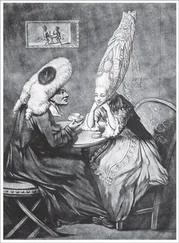Bill Bryson - Notes from a small Island
Здесь есть возможность читать онлайн «Bill Bryson - Notes from a small Island» весь текст электронной книги совершенно бесплатно (целиком полную версию без сокращений). В некоторых случаях можно слушать аудио, скачать через торрент в формате fb2 и присутствует краткое содержание. Жанр: Современная проза, на английском языке. Описание произведения, (предисловие) а так же отзывы посетителей доступны на портале библиотеки ЛибКат.
- Название:Notes from a small Island
- Автор:
- Жанр:
- Год:неизвестен
- ISBN:нет данных
- Рейтинг книги:4 / 5. Голосов: 2
-
Избранное:Добавить в избранное
- Отзывы:
-
Ваша оценка:
- 80
- 1
- 2
- 3
- 4
- 5
Notes from a small Island: краткое содержание, описание и аннотация
Предлагаем к чтению аннотацию, описание, краткое содержание или предисловие (зависит от того, что написал сам автор книги «Notes from a small Island»). Если вы не нашли необходимую информацию о книге — напишите в комментариях, мы постараемся отыскать её.
Notes from a small Island — читать онлайн бесплатно полную книгу (весь текст) целиком
Ниже представлен текст книги, разбитый по страницам. Система сохранения места последней прочитанной страницы, позволяет с удобством читать онлайн бесплатно книгу «Notes from a small Island», без необходимости каждый раз заново искать на чём Вы остановились. Поставьте закладку, и сможете в любой момент перейти на страницу, на которой закончили чтение.
Интервал:
Закладка:
A bit further on I came to a lonely gatehouse with a machicolated roofline. Beyond it stood a sweep of open field full of stubbly winter wheat, and beyond that, just visible through a mantle of trees, was a large and manyangled green copper roof Welbeck Abbey, or so at least I hoped. I followed the path around the periphery of the field, which was immense and muddy. It took me nearly threequarters of an hour to make my way to a paved lane, but I was sure now that I had found the right place. The lane passed alongside a narrow, reedy lake, and this, according to my trusty OS map, was the only body of water for miles. I followed the lane for perhaps a mile until it ended at a rather grand entrance beside a sign saying PRIVATE NO ENTRY, but with no other indication of what lay beyond.
I stood for a moment in a lather of indecision (the name I would like, incidentally, if I am ever ennobled: Lord Lather of Indecision) and decided to venture up the drive a little way just enough to at least glimpse the house which I had come so far to see. I walked a little way. The grounds were meticulously and expensively groomed, but well screened with trees, so I walked a little further. After a few hundred yards the trees thinned a little and opened out into lawns containing a kind of assault course, with climbing nets and logs on stilts. What was this place? A bit further on, beside the lake, there was an odd paved area like a car park in the middle of nowhere which I realized, with a small cry of joy, was the duke's famous skatingrink. Now I was so far into the grounds that discretion hardly mattered. I strode on until I was square in front of the house. It was grand but curiously characterless and it had been clumsily graced with a number of new extensions. Beyond in the distance was a cricket pitch with an elaborate pavilion. There was noone around, but there was a car park with several cars. This was clearly some kind of institution perhaps a training centre for somebody like IBM. So why was it so anonymous? I was about to go up and have a look in the windows when a door opened and a man in a uniform emerged and strode towards me with a severe look on his face. As he neared me, I could see his jacket said 'MOD Security'. Ohoh.
'Hello,' I said with a big foolish smile.
'Are you aware, sir, that you are trespassing on Ministry of 'Defence property?'
I wavered for a moment, torn between giving him my touristfromIowa act ('You mean this isn't Hampton Court Palace? I just gave a cab driver .175') and fessing up. I fessed. In a small respectful voice I told him about my long fascination with the fifth Duke of Portland and how I had ached to see this place for years and couldn't resist just having a peep at it after coming all this way, which was exactly the right thing to do because he obviously had an affection for old W.J.C. himself. He escorted me smartishly to the edge of the property and kept up something of a bluff manner, but he seemed quietly pleased to have someone who shared his interests. He confirmed that the paved area was the skatingrink and pointed out where the tunnels ran, which was pretty much everywhere. They were still sound, he told me, though they weren't used any longer except for storage. The ballroom and other underground chambers, however, were still regularly employed for functions and as a gymnasium. The MOD had just spent a million pounds refurbishing the ballroom.
'What is this place anyway?' I asked.
'Training centre, sir,' was all he would say and in any case we had reached the end of the drive. He watched to make sure I went. I walked back across the big field, then paused at the far end to look at the Welbeck Abbey roof rising from the treetops. I was pleased to know that the Ministry of Defence had maintained the tunnels and underground rooms, but it seemed an awful shame that the place was so formidably shut to the public. It isn't every day after all that the British aristocracy produces someone of W.J.C. ScottBentinck's rare and extraordinary mental loopiness, though in fairness it must be said they give it their best shot. And with this thought to chew on, I turned and began the long trudge back to Worksop.
CHAPTER SIXTEEN
I SPENT A PLEASANT NIGHT IN LINCOLN, WANDERING ITS STEEP AND ancient streets before and after dinner, admiring the squat, dark immensity of the cathedral and its two Gothic towers, and looking forward very much to seeing it in the morning. I like Lincoln, partly because it is pretty and well preserved but mostly because it seems so agreeably remote. H.V. Morton, in In Search of England, likened it to an inland St Michael's Mount standing above the great sea of the Lincolnshire plain, and that's exactly right. If you look on a map, it's only just down the road a bit from Nottingham and Sheffield, but it feels far away and quite forgotten. I like that very much.
Just about the time of my visit there was an interesting report in the Independent about a longrunning dispute between the dean of Lincoln Cathedral and his treasurer. Six years earlier, it appears, the treasurer, along with his wife, daughter and a family friend, had taken the cathedral's treasured copy of the Magna Carta off to Australia for a sixmonth fundraising tour. According to the Independent, the Australian visitors to the exhibition had contributed a grand total of just .938 over six months, which would suggest either that Australians are extraordinarily tightfisted or that the dear old Independent was a trifle careless with its facts. In any case, what is beyond dispute is that the tour was a financial disaster. It lost over .500,000 a pretty hefty bill, when you think about it, for four people and a piece of parchment. Most of this the Australian government had graciously covered, but the cathedral was still left nursing a .56,000 loss. The upshot is that the dean gave the story to the press, causing outrage among the cathedral chapter; the Bishop of Lincoln held an inquiry at which he commanded the chapter to resign; the chapter refused to resign; and now everybody was mad at pretty much everybody else. This had been going on for six years.
So when I stepped into the lovely, echoing immensity of Lincoln Cathedral the following morning I was rather hoping that there would be hymnals flying about and the unseemly but exciting sight of clerics wrestling in the transept, but in fact all was disappointingly calm. On the other hand, it was wonderful to be in a great ecclesiastical structure so little disturbed by shuffling troops of tourists. When you consider the hordes that flock to Salisbury, York, Canterbury, Bath and so many of the other great churches of England, Lincoln's relative obscurity is something of a small miracle. It would be hard to think of a place of equal architectural majesty less known to outsiders Durham, perhaps.
The whole of the nave was filled with ranks of padded metal chairs. I've never understood this. Why can't they have wooden pews in these cathedrals? Every English cathedral I've ever seen has been like this, with semistraggly rows of chairs that can be stacked or folded away. Why? Do they clear the chairs away for barndancing or something? Whatever the reason, they always look cheap and out of keeping with the surrounding splendour of soaring vaults, stained glass and Gothic tracery. What a heartbreak it is sometimes to live in an age of such consummate costconsciousness. Still, it must be said that the modern intrusions do help you to notice how extravagantly deployed were the skills of medieval stonemasons, glaziers and woodcarvers, and how unstinting was the use of materials.
I would like to have lingered, but I had a vital date to keep. I needed to be in Bradford by midafternoon in order to see one of the most exciting visual offerings in the entire world, as far as I am concerned. On the first Saturday of every month, you see, Pictureville Cinema, part of the large and popular Museum of Photography, Film and Something Else, shows an original, uncut version of This Is Cinerama. It is the only place in the world now where you can see this wonderful piece of cinematic history, and this was the first Saturday of the month.
Читать дальшеИнтервал:
Закладка:
Похожие книги на «Notes from a small Island»
Представляем Вашему вниманию похожие книги на «Notes from a small Island» списком для выбора. Мы отобрали схожую по названию и смыслу литературу в надежде предоставить читателям больше вариантов отыскать новые, интересные, ещё непрочитанные произведения.
Обсуждение, отзывы о книге «Notes from a small Island» и просто собственные мнения читателей. Оставьте ваши комментарии, напишите, что Вы думаете о произведении, его смысле или главных героях. Укажите что конкретно понравилось, а что нет, и почему Вы так считаете.












